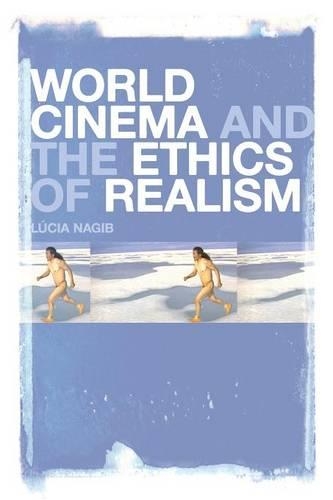
World Cinema and the Ethics of Realism
(Paperback)
Available Formats
Publishing Details
World Cinema and the Ethics of Realism
By (Author) Professor Lcia Nagib
Continuum Publishing Corporation
Continuum Publishing Corporation
24th March 2011
United States
Classifications
Professional and Scholarly
Non Fiction
791.4309
Physical Properties
Paperback
312
504g
Description
World Cinema and the Ethics of Realism is a highly original study. Traditional views of cinematic realism usually draw on the so-called classical cinema and its allegiance to narrative mimesis, but Nagib challenges this, drawing instead on the filmmaker's commitment to truth and to the film medium's material bond with the real.
Starting from the premise that world cinema's creative peaks are governed by an ethics of realism, Nagib conducts comparative case studies picked from world new waves, such as the Japanese New Wave, the French nouvelle vague, the Cinema Novo, the New German Cinema, the Russo-Cuban Revolutionary Cinema, the Portuguese self-performing auteur and the Inuit Indigenous Cinema. Drawing upon Badiou and Rancire, World Cinema and the Ethics of Realism revisits and reformulates several fundamental concepts in film studies, such as illusionism, identification, apparatus, alienation effects, presentation and representation. Its groundbreaking scholarship takes film theory in a bold new direction.
Reviews
The Ethics of Realism may be too tame a title for the rambunctious scholarship this book contains. Lcia Nagib has a sharp eye for what, through her lens, become stupefying motifs and moments within films that she just as sharply cuts out of the vast herd of movies. You can sense her pleasure at relaying to us the cinematic power she has found in cast-off failures' like I am Cuba or that she resuscitates in films we thought we knew, such as The 400 Blows. Ultimately tying these to historical struggles of filmmakers and the societies they worked within, she does in fact make good on her title. This is a truly high-minded argument for cinema as the conscience of the past century. The films Nagib illuminates made and kept promises to the world they came from. This book honors the importance, not just the beauty of cinematic art. --Dudley Andrew, R. Selden Rose Professor of Film and Comparative Literature, Yale University
Lcia Nagib's book World Cinema and the Ethics of Realism injects new vitality and energy into some important but familiar debates in film theory. In the first instance, her surprising selection of films challenges existing concepts of world cinema. More radically, however, these films have a unifying aesthetic out of which Nagib's own approach to realism comes into focus. These are films that privilege rawness and physicality, that place extreme demands on performers and producers, and inescapably work with the reality of event as well as the recording function of the medium itself. Nagib's grounding for the aesthetic of realism is based on an ethical commitment to the living, temporal, spatial and dramatic exchange between the camera as mechanism and the extreme event it is filming. Nagib has successfully turned the theoretical kaleidoscope, reconfiguring the crucial concept of realism, its significance for film theory, into new, exciting, sometimes shocking, patterns of thought and perception. --Laura Mulvey, Department of History of Art and Screen Media, Birkbeck, University of London
Author Bio
Lcia Nagib is Professor of Film and Director of the Centre for Film Aesthetics and Cultures (CFAC) at the University of Reading. Her research has focused, among other subjects, on polycentric approaches to world cinema, new waves and new cinemas, cinematic realism and intermediality. She is the author of World Cinema and the Ethics of Realism (Continuum, 2011), Brazil on Screen: Cinema Novo, New Cinema, Utopia (I.B. Tauris, 2007), The Brazilian Film Revival: Interviews with 90 Filmmakers of the 90s (Editora 34, 2002), Born of the Ashes: The Auteur and the Individual in Oshimas Films (Edusp, 1995), Around the Japanese Nouvelle Vague (Editora da Unicamp, 1993) and Werner Herzog: Film as Reality (EstaoLiberdade, 1991). She is the editor of Impure Cinema: Intermedial and Intercultural Approaches to Film (with Anne Jerslev, 2013), Theorizing World Cinema (with Chris Perriam and Rajinder Dudrah, I.B. Tauris, 2011), Realism and the Audiovisual Media (with Ceclia Mello, Palgrave, 2009), The New Brazilian Cinema (I.B. Tauris, 2003), Master Mizoguchi (Navegar, 1990) and Ozu (Marco Zero, 1990).
